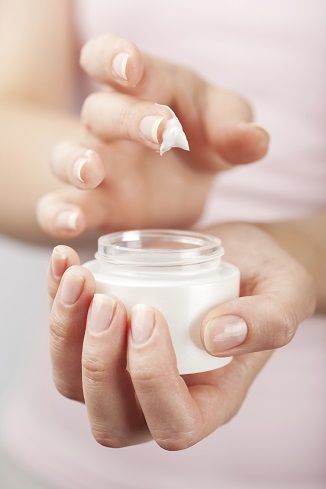 Benzoyl Peroxide, or simply BP, is probably the most famous acne treatment there is. Tons of different face washes contain it; even if you’re not knowingly using it then you’ve probably put BP on your face at some point.
Benzoyl Peroxide, or simply BP, is probably the most famous acne treatment there is. Tons of different face washes contain it; even if you’re not knowingly using it then you’ve probably put BP on your face at some point.
You can also buy Benzoyl Peroxide to use by itself and countless people do exactly that. However, like most acne treatments it is extremely controversial.
Its proponents claim that Benzoyl Peroxide is a cheap substance that can work miracles, whereas its detractors argue that the side effects are too severe to make it worth considering.
There’s no doubt that myths about acne and skincare are everywhere. The biggest one is that diet has zero effect; the reality is that diet is the most important cause of acne, and is about ten times as important as hygiene. Then there’s BP, which has just as many myths surrounding it.
Therefore, today we will cut through the hype and discover the truth about whether you should be using Benzoyl Peroxide to clear your acne.
Does BP actually work?
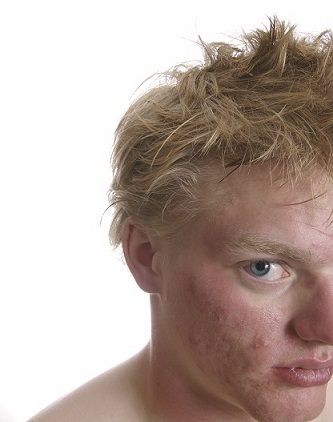 This is the first and most important question, and the answer is yes, it often does.
This is the first and most important question, and the answer is yes, it often does.
Benzoyl Peroxide does have the ability to kill acne and it has been widely established. The very reason it is used in such a large amount of products is that it has a proven track record. Benzoyl Peroxide is effective because of its ability to destroy p. acnes bacteria.
First you need to know how exactly this bacteria causes acne. P. acnes bacteria causes pimples to form by kick-starting an inflammatory response. There will always be some p. acnes in your skin pores, but in a blocked skin pore the amount of oxygen decreases substantially, and that allows p. acnes to multiply rapidly. The body then identifies this gathering of bacteria as a threat, and unleashes an inflammatory response against it.
In normal people this response is fairly small; p. acnes are just harmless bacteria and don’t need an all-out assault. But acne patients have overly powerful immune systems (also known as chronic inflammation) and this causes an extreme and over the top response to p. acnes. The excessive amounts of inflammatory chemicals cause the pore to become red, swollen, and adopt all the other characteristics of a pimple you’re familiar with.
In other words then, bacteria is a very important part of the acne formation process. Benzoyl Peroxide works by destroying this bacteria; when you apply it to your skin, it breaks down and forms oxygen, and this floods into your skin pores.
Read Annihilate Your Acne – learn to prevent acne and stop just treating it!
Because p. acnes relies on a low oxygen environment to thrive, this influx of oxygen will cripple them and their numbers will dramatically drop. That then reduces acne, and prevents new pimples from forming in the short term. Killing bacteria is the key selling point of BP and it does that very effectively.
Benzoyl Peroxide also has some other short term advantages for your acne. Many have also noticed that BP reduces the oiliness of their skin, and there’s also lots of evidence that Benzoyl Peroxide can unblock your skin pores to some extent.
Unlike plenty of other products there is a lot of science behind Benzoyl Peroxide and there’s plenty of evidence too; pharmaceutical companies wouldn’t love it so much if it didn’t work.
Why I don’t recommend BP
If you’re excited about the information above then don’t think so fast. Benzoyl Peroxide might have the ability to reduce acne but it also has an extremely high number of reported side effects.
These effects are extremely varied and are severe in some cases. Some users report that Benzoyl Peroxide causes their skin to dry out and get excessively flaky.
Some report that BP causes their skin to get red and irritated, which is quite opposite to the desired result of getting your skin to look better. Some people even report that Benzoyl Peroxide can cause premature aging. Apparently people noticed that using Benzoyl Peroxide for a long time caused their face to gain the kind of wrinkles they expected would be decades away.
Therefore the fact that Benzoyl Peroxide works does not at all mean that you should use it. You only have to go on the internet to find the problems that people have had with it.
If you compare the customer reviews and experiences for Benzoyl Peroxide to other products, then you’ll see that the amount of problems reported is significantly higher. There aren’t any studies studying the side effects such as premature aging, but it makes a lot of sense when you consider the science. Benzoyl Peroxide forms oxygen (as well as benzoic acid) when it comes into contact with the skin, meaning that it can cause oxidative damage to your cells.
The top 6 vitamins and minerals for clearing acne forever
One of the biggest causes of aging in your body are so-called “reactive oxygen species”, and by using BP you are placing them directly on your skin. There’s no way around the problem either. These damaging oxygen particles are the very reason why BP works in the first place, because they are what causes bacteria to die.
It is true that there are numerous people who use Benzoyl Peroxide without side effects; in fact it’s more than likely that you wouldn’t have many problems if you used it. However why take the risk, when there are products that are just as effective and also cause no side effects?
Raw honey is my recommended acne treatment. It is highly anti-inflammatory, and is renowned for its anti-bacterial properties. One of my favourite topical strategies ever is to take a jar of Y.S. Eco Bee Farms Raw Honey (link below), apply a small blob to each active pimple on your face, and then go to sleep. The next morning you wake up to far calmer pimples, but with zero free radical damage.
You could get just as good results with Y.S. Eco Bee Farms Raw Honey (amazon link), which is the raw honey I’ve previously used, as with BP. You would be free from the side effects because honey rarely causes any. Benzoyl Peroxide might work but there are better options available.
There’s also the problem that while BP might reduce your acne in the short term, it is nowhere near as good in the long term. The internet has tons of stories where people succeed with Benzoyl Peroxide in the short term, only to have the acne come roaring back within weeks or even days.
The reason why is that using BP can cause the sebum on your face to oxidise. Sebum oxidation is the single most important factor behind acne; basically it is when the sebum (oil) on your face reacts with oxygen to form squalene peroxide. That is one of most comedogenic (pore-blocking) substances your body can produce and is one of the biggest reasons why acne forms in the first place. P. acnes bacteria is important, but it comes in at a later stage in the acne formation cycle.
Using BP is a good way to cause sebum oxidation because when it creates all the oxygen on your face, it is almost guaranteed to react with something. Therefore by using Benzoyl Peroxide you can treat one aspect of your acne, but you make another one significantly worse. Over the months, the two factors will probably balance out to no benefit at all.
Recommended – the 7 greatest natural topical treatments for acne
What usually happens is that the p. acnes is killed, so the inflammation temporarily goes down, but then the increased rates of sebum oxidation create more blocked pores and more opportunity for bacteria to do their work in the first place. You may have noticed that your new face wash stops working fairly quickly and if so, this is why.
The fundamental flaw
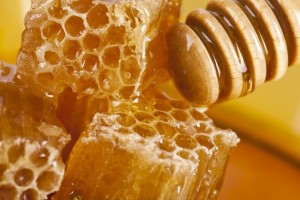 The biggest reason why Benzoyl Peroxide is not the cure for acne that people make it out to be is that Benzoyl Peroxide is a hygiene treatment.
The biggest reason why Benzoyl Peroxide is not the cure for acne that people make it out to be is that Benzoyl Peroxide is a hygiene treatment.
You cannot cure your acne using hygiene alone, you have to focus on your diet and lifestyle first. Acne starts inside the body and therefore you have to treat it with respect to that.
Here’s an example: you can use BP to destroy p. acne bacteria on your face, but if you don’t get enough antioxidants in your diet, then your pores will keep getting blocked and bacteria will keep having new opportunities to appear.
You can never fully fix your acne problem with hygiene for the simple reason that it doesn’t affect any of the root causes behind it. Some of those root causes are elevated insulin levels, deficiencies in nutrients such as zinc and vitamin E, a stressful life, and a diet high in sugar and other inflammatory substances.
Why bread and pasta are a massive cause of acne
By relying on topical treatments you are only putting a patch on the problem and not fixing it. Hygiene treatments are good tools to use; raw honey is a great way to calm existing acne down. However it does not completely prevent acne and no hygiene treatment will.
Only a nutritious and clean diet can make your skin truly bulletproof (though not literally bulletproof). If you do decide to use a hygiene treatment then you should make sure it is completely reliable and has few side effects, but Benzoyl Peroxide does not fit into that category.
But I’m extremely poor!
One of the biggest advantages of Benzoyl Peroxide is that it’s dirt cheap. Benzoyl Peroxide does have a track record of reducing acne in the short term and it does that without breaking your bank account.
However I still don’t recommend that you use BP even if you are extremely poor. Just because something is cheap and could benefit your skin does not mean that you need it.
Don’t fall victim to the whole “special offer mentality”; that’s when you see something that’s cheap and rush out to buy it in a fever of opportunism, with no consideration for whether you actually need it or not.
The most effective all-natural acne treatments
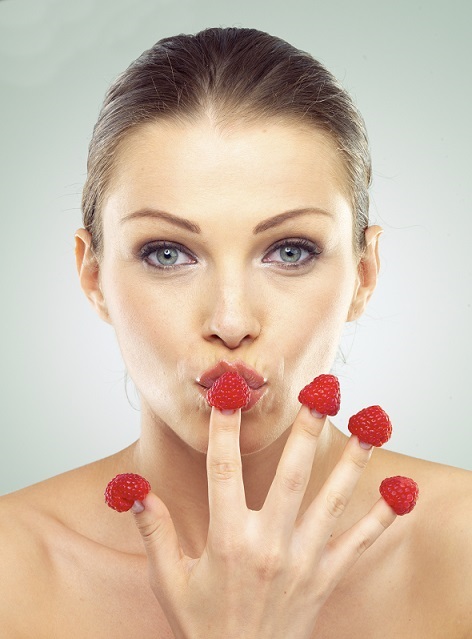 Cheap or not, BP is not something I recommend for your acne. Honey is a better option, royal jelly is a better option, even pomegranate juice is better because it is full of antioxidants.
Cheap or not, BP is not something I recommend for your acne. Honey is a better option, royal jelly is a better option, even pomegranate juice is better because it is full of antioxidants.
If you want to blast your pimples away using a top notch raw honey, then the product which I’ve had good results with and hence recommend is this Y.S. Eco Bee Farms Raw Honey (amazon link)
I’ve tried other varieties of honey (there’s endless different honeys, all with varying antibacterial compounds) but Y.S. Eco Bee Farms Raw Honey is as good as any of them.
What makes it the best is the ultimate bulk pricing; there’s 22oz per $9 tub and given that you need only a small blob for each pimple, it should easily last you a year.
Alternatively, you could use this Eden’s Garden Tea Tree Oil (amazon link), try Eden Gardens Thyme Oil (amazon link), or try one of the many other antibacterial treatments such as blue light devices or royal jelly.
Watch out for the BP myths
 This post is generally against Benzoyl Peroxide, but because it’s best that you are as informed and knowledgeable as you can possibly be, you also need to know about some of the crazy myths out there.
This post is generally against Benzoyl Peroxide, but because it’s best that you are as informed and knowledgeable as you can possibly be, you also need to know about some of the crazy myths out there.
Like other common acne treatments, Benzoyl Peroxide has a lot of horror stories attributed to it because down-market acne websites know they’ll get a lot of views if they invent them. The stories then spread to the well-meaning and honest websites, and before long the myths have become firmly engrained in the public conscience.
Why dairy can either destroy your skin or improve it
Benzoyl Peroxide has been one of the biggest victims of this phenomenon and by far the biggest myth created is that it can give you cancer. The idea is that because free radicals are known to cause cancer in the body, the free radicals that Benzoyl Peroxide generates will also give you cancer.
However, BP’s free radicals are completely safe because they do not travel very far. They travel far enough into your skin to destroy p. acnes (and to oxidise your sebum) but they cannot cause enough damage to mutate your cells and give you cancer.
If you have heard this rumour and you’ve used Benzoyl Peroxide in the past, then you will be understandably worried or even terrified. The good news is that there is no evidence at all that Benzoyl Peroxide causes cancer. There is not even a shred of proof, so there’s no need for you to worry about it.
The other major myth is that Benzoyl Peroxide makes you more vulnerable to getting cancer from the sun. The old legend is that Benzoyl Peroxide damages your resistance to UV rays and that makes it easier for the radiation to mutate your skin cells. That would be bad news for acne as well; it’s vital for every acne patient to strengthen their skin against sunlight.
Luckily, this is again something you can relax about. There have actually been studies done on this and they all found that BP has no effect on your resistance to UV light. Scientists in this study applied a Benzoyl Peroxide gel to hairless mice for 52 weeks, and found that there was no worsening at all in the damage caused by UV light.
Why zinc supplements can reduce acne by 49.8%
There was no increased carcinogenicity (formation of cancer cells) and there was no increase in the number of tumours being formed. Another study was done on mice and it found almost identical results. So if you have used Benzoyl Peroxide in the past and are now worried about these myths, you can rest easy. Yes, Benzoyl Peroxide can cause side effects on your face, but it will definitely not kill you. The side effects are much milder than for accutane because it never enters your body.
If you have no other option…
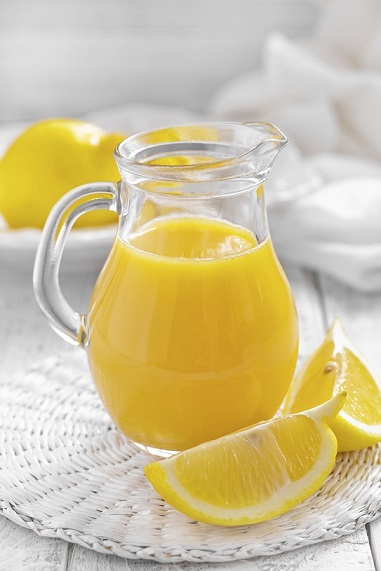 If you really have to use Benzoyl Peroxide for whatever reason, then pick a low strength version.
If you really have to use Benzoyl Peroxide for whatever reason, then pick a low strength version.
The strength of Benzoyl Peroxide varies a lot; you can get 2.5% concentrated versions, 5%, 10%, and other types in between. You might use logic to think that if you don’t get results with a low strength version, then a high strength one will doubtlessly be better.
However according to this study, that’s not the case. It compared three different Benzoyl Peroxide solutions, one with 2.5%, 5%, and 10% strength and found that the higher strength versions did not cause a greater reduction acne.
What they did cause was a lot more side effects; there was significantly more irritation of the skin with the 10% and 5% solutions. Therefore 2.5% Benzoyl Peroxide is the way to go if you really want to use it.
You might be one of the people who has no side effects at all, and if you’re lucky, you might be one of the people who gets excellent and long lasting results with it.
Sea buckthorn oil – a topical treatment which lowers oily skin by 45%
Still, if you’re low on cash then you’d do far better to read this article on 13 cheap dietary tactics for clearing acne, or this similar one on cheap lifestyle tricks for acne.
While we’re here, there’s several other overrated acne cures that you should know about. Cucumber is touted as being natural and good for skin tone, but it actually does nothing. Lemon juice is believed by some to be antibacterial, but is actually overly acidic and photosensitising.
Topical toothpaste is a myth, while apple cider vinegar is also too acidic. So watch out!
Conclusion
Benzoyl Peroxide is not a scam product and it’s not a hoax; it has a good ability to kill p. acnes bacteria and therefore it can improve your acne. However it has a lot of skin-damaging side effects and it generally doesn’t work so well in the long run.
It’s entirely possible that you’ll use Benzoyl Peroxide and get great results, but there’s no need to bother when there are far more reliable treatments. Also, you should definitely not listen to people who claim that Benzoyl Peroxide is a miracle cure. Hygiene is important for your acne but it will never entirely cure it, even with the good products like raw honey and blue light devices.
Never forget that to truly cure your acne, you must focus on your diet and your lifestyle. Benzoyl Peroxide also takes a lot of effort to use; you have to devise all sorts of regimens to prevent the side effects from happening.
If you don’t bother with Benzoyl Peroxide then you can focus more effort on the strategies that really matter. You can devote more brainpower to reducing your cortisol levels, if you are stressed at all. In the time it takes to apply Benzoyl Peroxide properly you could go and listen to some music, crush your stress levels, and thus achieve a good reduction in acne without any risk of side effects.
Final words: don’t waste your time on Benzoyl Peroxide. It’s not an effective cure for acne, and it causes far too many side effects.
NEXT: read the 167 page eBook and get the ultimate diet for acne
Thanks for reading!

Thanks For The Info. Tell us about how and where to apply honey.
Honey works excellently when applied to one particularly large, red and inflamed spot rather than the whole face. Use a small globule and leave it overnight. Make sure it’s raw honey because pasteurised honey has none of the beneficial anti-bacterial compounds.
I wish I knew that before!! I used BP for almost a year. That is now 2,5 years ago and I have never used it since. When I look at pictures of my self from that time, my skin were very red and burned. I don’t think I noticed how extreme it was. And it was always dry, no matter how much mouister I used.
Now, 2,5 years later my skin has aged. It is not just a theory. When I look at pictures from before my skin started to age in a high speed after the use of BP. Not only lines and wrikles but also the fat under the skin has dropped a lot for my age. Dropped as in: sagging skin.
Besides from acne, my skin has never looked more dead than now! I’m 29 and have skin like i’m soon around 40. I hate my skin!
I have also read that useing BP is like beeing in the sun withouth sunscreen. You age in the same way because of what it consist! I will recommend no one to use BP!!
Do you know, or any one know what to do with it? Do I have to do peelings and maybe surgery?
OK Mike, you might be able to reverse some of the ageing and wrinkles by increasing the collagen levels in your skin (a drop in collagen is one main factor behind ageing). Two ways to do that are getting more vitamin c and certain types of protein. You can read more about increasing collagen in this article: https://supernaturalacnetreatment.com/collagen-can-cure-acne/
The second strategy is to massively minimise any future contact with free radicals, as it’s the free radicals which BP generates that can age people prematurely. So keep cigarette smoke, air pollution, exposure to household chemicals like deodorant, as low as you can. I’ve always found that vitamin D makes my skin glowing and young looking as well.
Hi!
I made some research about BP. Actually it is not cancerogen. If you are using BP and then don’t use SPF and go outside you are in risk category but because of skin sensitivity no BP itself. There ir no researches about BP linked with cancer. If person is in risk group it is and that all.
Premature wrinkling is dehidratization. Every skin type needs to be moisturized. People should be aware of sun, smoking, overweight and alcohol. The only thing I avoid in my beauty routine is SLS and aluminium salt.
Anna you’re correct that Bp is not carcinogenic but it still generates free radicals that destabilise and weaken skin cells and make them prone to acne, as well as causing premature ageing. That’s not inevitable either, because natural products kill bacteria through other means. Raw honey kills p.acnes bacteria through compounds like bee defensin 1, not free radical overload. You’re correct about alcohol and being overweight causing acne. However sunlight isn’t instantly bad because it’s needed to increase vitamin d levels and you can build your defences against free radicals from sunlight by eating more vitamin A, antioxidants, etc.
Based on my experience with benzoyl peroxide, it is true what you said that benzoyl peroxide is a short term solution; however, it does help to bring skin back to its normal, healthy balance since it eliminates unwanted bacteria. With that being said, I think that calling benzoyl peroxide a “fatal mistake” is a bit over the top. As you mentioned, natural remedies are always a better approach to treating acne at first such as maintaining a healthy lifestyle. I also like that you pointed out common myths and misconceptions of benzoyl peroxide since it can often lead people away. You have some great information – thanks for your input.
Phew, I’m so glad you told us that it doesn’t actually cause cancer…
You’re welcome Sunny.
sir I hv more pimples on my face
Hi there, thank you for that detailed information! I was just wondering when you said it doesn’t cause cancer, that there is no proof, do you have proof of this? Because I recently read another set of posts, and a person showed sources stating that it is a tumor promoting product, changed from a Category I (safe) to Category III (safety uncertain) in 1995.
Thanks.
Kind Regards, Elle
I need help for real , my doctor recommended it to me and now idk what to do reading all this , my face has been getting really red since I used it andyou can say my face kind of looks worse because of it but I haven’t really been getting pimples since I started using it , but idk what to do , should I stop or keep using it I need help
You’ve read the article, the choice is yours. Keep going if your experiences say yes but the side effects may well show up. Personally I would try raw honey as it kills bacteria, like BP. If BP is working well for you then perhaps killing p.acnes is your top priority.
This is so objective. I love it!
Will the redness go down?
If you do what, remove the BP? If BP aggravated your skin then yes. Remove the free radicals and the irritation is removed. If your skin was red anyway then no, you’ll need some new strategies.
Honey causes allergies on my skin. And brings more acnes on sensitive oily skin. Tell me something which I can use it with no worries.
Greetings She, you might simply have an allergy to bee products, so read this article. https://supernaturalacnetreatment.com/top-5-natural-topical-acne-treatments/
For oily skin you might need to eat less carbohydrates, or it could be more complicated, but eating less carbs is the default strategy if you aren’t already doing so.
I’ve used benzoyl peroxide on my skin almost daily for over 20 years… and have never once have had any problems with it .. or my skin
This article is a pile of garbage.
You’ve missed the extremely obvious point that you’re just one person. Like I clearly said here, some people will have good results with it, but many will fail miserably.
I used BP a few years ago, didn’t find it did a great deal for me but thought I’d try again as now my skin has got horrific, and I’ve just been diagnosed with PCOS.
My skin has come up so dry and disgusting looking this time, mainly underneath my mouth after applying it only twice there. How long is it going to take to go? :( I’m going on holiday next week and I regret using it now. I’m on lymececline, the pill and now BP and just nothing is working for my spots. It’s getting me very down
I think you are missing a point where bp not just kill bacteria but also sebostatic and comedolytic which play huge role in treating acne..i dont think those natural remedies can
Good article!. I had a horrible breakout once and my GP told me to use it, and I used it for 4 days and made my skin dry, the acne vanished and I never used it again. Now just use moisturizer. I personally was very happy with the results from it.
Hello thea, am Joan from Uganda. Am black. I had a clear face before but I got pimples and acnes. They told me to try dettol soap and currently its what am using. If I use the BP. Will it work out for me to get a clear skin?
Possibly, but like it says in the article, it has side effects and there’s many natural alternatives.
Hi,
I found an article saying that benzoyl peroxide does not age your skin prematurely.
This is the link
https://www.facebook.com/PaulasChoice.Inc/posts/10150709577929004
How would you respond to that, and is what Paula’s choice saying true or false?
I just started using BP and if it does cause premature aging i do not want to continue using it.
Hi Richard can you suggest me some face wash for daily use please ???
What an excellent article! I can back this up from experience from using 2.5% BP topically for almost a decade.
Yes it does dry the skin: I moisturize well in response. My skin is fine with a few actives besides BP being used too (though not all at the same time, split between AM/PM). All the actives I use are drying …
What if I stop using it: I get more pimples.
If I could cure my acne completely internally, through reduction of stress, inflammation, great diet, sleep, etc. I would come off it in a second. For now I keep using it as a line of defence.
Your articles are great, the best I’ve come across! I don’t take them as gospel, but you are doing god’s work here.